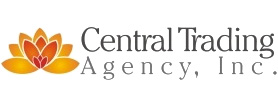Chief procurement officers will agree on very little. Their individual experiences in the industry have influenced their opinions and they all have their own ways of doing things.
That being said, there is one thing they will all agree on – the main goal of a CPO is to slash procurement costs. Deloitte’s recent 2016 Global Chief Procurement Officer (CPO) Study confirms this, stating that reducing costs is the main challenge for a whopping 74% of CPOs interviewed. If it is possible to do so quickly, all the better.
Today, we will be looking into ways in which CPOs can quickly reduce procurement costs, ensure superior procurement cost management and help their companies operate at peak efficiency.
1. Embrace Data
We live in the age of data. CPOs have traditionally been more data-driven than professionals in most other departments, enabling them to better utilize the data to their advantage.
At the most basic level, this will involve utilizing supplier relationship management (SRM) software which will provide a comprehensive overview of all vendors and relationships that CPOs deal with as a part of their job. This type of software will bring all of the vendor data in one place, allowing CPOs to know everything about every single vendor relationship.
Embracing data will also involve better product information management (PIM) which will once again entail a software solution. While PIM is generally used more for better product introductions and launches, it can also help procurement professionals get up to speed quickly and streamline procurement faster.
Improved data tracking and analysis also reduces the chances of waste and delays in the procurement process, identifying weak points and trends that jeopardize efficient procurement cost management.
2. Take Control of Indirect Procurement
As opposed to direct procurement which entails the purchase of goods and services that are directly used for the manufacturing of the product, indirect procurement refers to the purchase of goods and services which play a supporting role and are not directly incorporated into the manufacturing process.
For example, purchasing safety equipment, office supplies, computer equipment or janitorial services all fall into the indirect procurement category.
While indirect procurement makes up only a small portion of overall costs (usually up to 10%), it is often handled as an afterthought with plenty of room for reducing costs. Smart CPOs will understand the value of taking control of indirect procurement while not wasting too much time on it.
3. Review Existing Contracts
Many procurement contracts are signed for extended periods of time and as the manufacturing process develops and new purchases are made, some of those contracts become almost automatic, with no one paying attention to them as they have been originally evaluated as good enough.
However, over time, those contracts can become less favorable which is why they should always be reevaluated on a regular basis.
Sometimes, an alternative vendor might enter the picture, with much better prices or other factors that determine the choice of vendor. Other times, certain global trends might call for a reduction in prices which your long-term vendor might decide not to address, calling for a renegotiation of the contract.
There is a myriad of reasons why all contracts should be reviewed regularly and there is no justification for not doing it.
4. Look Beyond the Prices
When choosing a vendor, the primary factor is the price, there is no doubt about that. However, there are other things to look out for, factors that may end up playing a role equal or even greater than the net price of the product or service that is purchased.
For example, a product that is somewhat pricier than that of a competitor vendor can actually turn out to be a better choice, thanks to the vendor’s superior customer service, ease of order placement, product quality, packaging and timely deliveries. Namely, when all of these are superior, the efficiencies that are enabled can easily make up for the higher initial price of the product or service.
Another way in which smart CPOs look beyond the price is that they value their own time (their salary in the eyes of the employer). Namely, there are certain types of bargain hunting which are counterproductive as their ultimate value is smaller than the value of the time the CPO spends finding those bargains.
5. Be Wary of Procurement Fraud
The PwC Global Economic Crime Survey 2016 has established that procurement fraud is the fourth most common economic crime on a global scale. While a certain drop can be observed in relation to previous years (mostly due to the recent explosion in cyber-crime), about a quarter of organizations still experience procurement fraud.
Procurement fraud is committed by someone from within the organization and it can take months, even years to discover. By that time, the damage often exceeds millions and the worst thing is that it is rarely recoverable.
Employee education is the easiest and actually the most effective way to prevent procurement fraud and detect it early enough. Regular reviews and audits are also effective, ensuring that contracts are checked regularly and that any and all irregularities are acknowledged as soon as possible.
6. Outsource your Procurement
Last but not least, procurement outsourcing provides an effective way to do smart procurement cost management. With a great procurement outsourcing partner, you ensure that all of the aforementioned tactics are deployed on your behalf.
Namely, a great procurement outsourcing partner will utilize data and tools, take control of indirect procurement, approach prices and contracts in a smart way, as well as make sure procurement fraud is never on your list of problems.
And this is just a part of it.
When one takes into consideration the level of expertise and dedication applied by procurement outsourcing companies, the costs of hiring such a company pale in comparison to the improved efficacy of the procurement process and the savings that are made throughout the process.
The effects on the bottom line are soon very visible and more than positive.
Choosing to outsource procurement with Central Trading Agency can help you reduce procurement cost, and also bring you additional benefits. Click here to find out how to use our procurement services and gain extra value from working with us.

